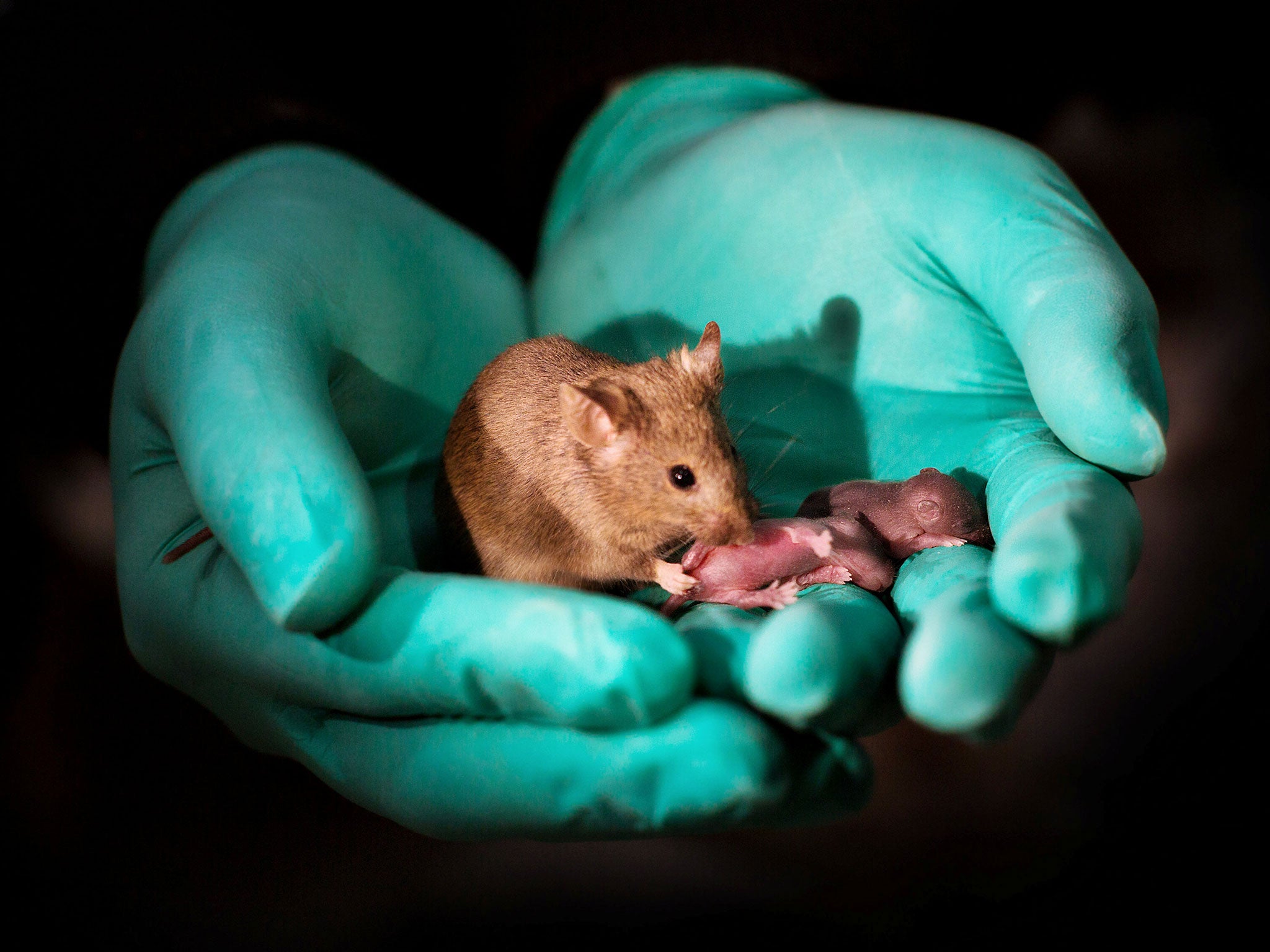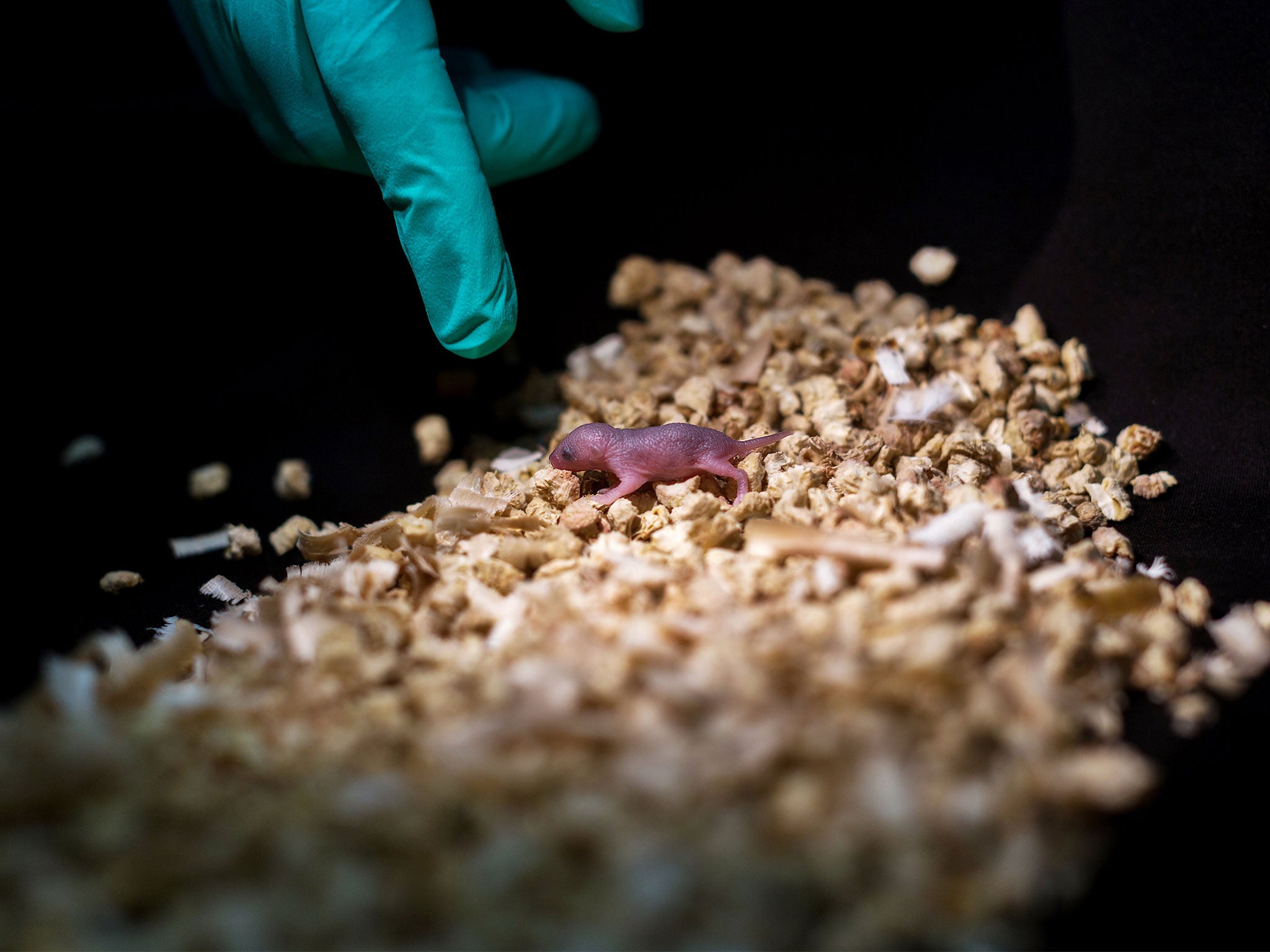Scientists produce healthy mice born to same-sex parents using stem cells and gene editing
Researchers breed 29 healthy mice with two mothers capable of producing offspring of their own

Your support helps us to tell the story
From reproductive rights to climate change to Big Tech, The Independent is on the ground when the story is developing. Whether it's investigating the financials of Elon Musk's pro-Trump PAC or producing our latest documentary, 'The A Word', which shines a light on the American women fighting for reproductive rights, we know how important it is to parse out the facts from the messaging.
At such a critical moment in US history, we need reporters on the ground. Your donation allows us to keep sending journalists to speak to both sides of the story.
The Independent is trusted by Americans across the entire political spectrum. And unlike many other quality news outlets, we choose not to lock Americans out of our reporting and analysis with paywalls. We believe quality journalism should be available to everyone, paid for by those who can afford it.
Your support makes all the difference.Scientists have been able to breed mice with same-sex parents using a breakthrough technique involving stem cells and gene editing.
Researchers at the Chinese Academy of Sciences have produced healthy mice with two mothers, who were then able to go on to reproduce themselves.
Mice with two fathers were also born during the study, but only survived for a matter of hours.
Using female same-sex parents, the scientists were able to produce a total of 29 live mice from 210 embryos.
All these offspring were normal, lived to adulthood, and were able to give birth to offspring of their own.
The study, published in scientific journal Cell Stem Cell, examined why same-sex mammals are not typically able to reproduce, suggesting stem cells and targeted gene editing can make the process easier.
“We were interested in the question of why mammals can only undergo sexual reproduction,” the study’s co-senior author Dr Qi Zhou said.
“We have made several findings in the past by combining reproduction and regeneration, so we tried to find out whether more normal mice with two female parents, or even mice with two male parents, could be produced using haploid embryonic stem cells with gene deletions.”
While some species of reptiles, amphibians and fish can change gender in order to reproduce or exist as both male and female at the same time, same-sex reproduction for mammals is a more difficult proposition, Dr Zhou said.
He said in mammals, certain maternal or paternal genes are shut off during the development of sperm and egg cells, meaning offspring that do not receive genetic material from both a mother and father might experience developmental abnormalities.

By deleting imprinted genes from immature eggs, researchers have in the past been able to produce mice with two mothers, although most still displayed genetic defects.
To produce healthy bi-maternal mice, Dr Zhou, his co-senior authors Dr Baoyang Hu and Dr Wei Li, and their colleagues used haploid embryonic stem cells (ESCs), containing half the normal number of chromosomes and DNA from each parent.
“We found in this study that haploid ESCs were more similar to primordial germ cells, the precursors of eggs and sperm,” Dr Hu said. “The genomic imprinting that's found in gametes was ‘erased’.”
Alongside the 29 healthy mice produced by same-sex female parents, a dozen mice were also born to two male parents during the course of the study.
However, the process of creating mice from same-sex male parents, which involves modifying a larger amounts of genes and inserting fertilised embryos into surrogate mothers, is more complicated.
All offspring from two males born during the study died after less than 48 hours, although scientists believe they can improve the process in future tests.
“This research shows us what's possible,” Dr Li said. “We saw that the defects in bi-maternal mice can be eliminated and that bi-paternal reproduction barriers in mammals can also be crossed through imprinting modification.
“We also revealed some of the most important imprinted regions that hinder the development of mice with same-sex parents, which are also interesting for studying genomic imprinting and animal cloning.”
Additional reporting by agencies
Join our commenting forum
Join thought-provoking conversations, follow other Independent readers and see their replies
Comments